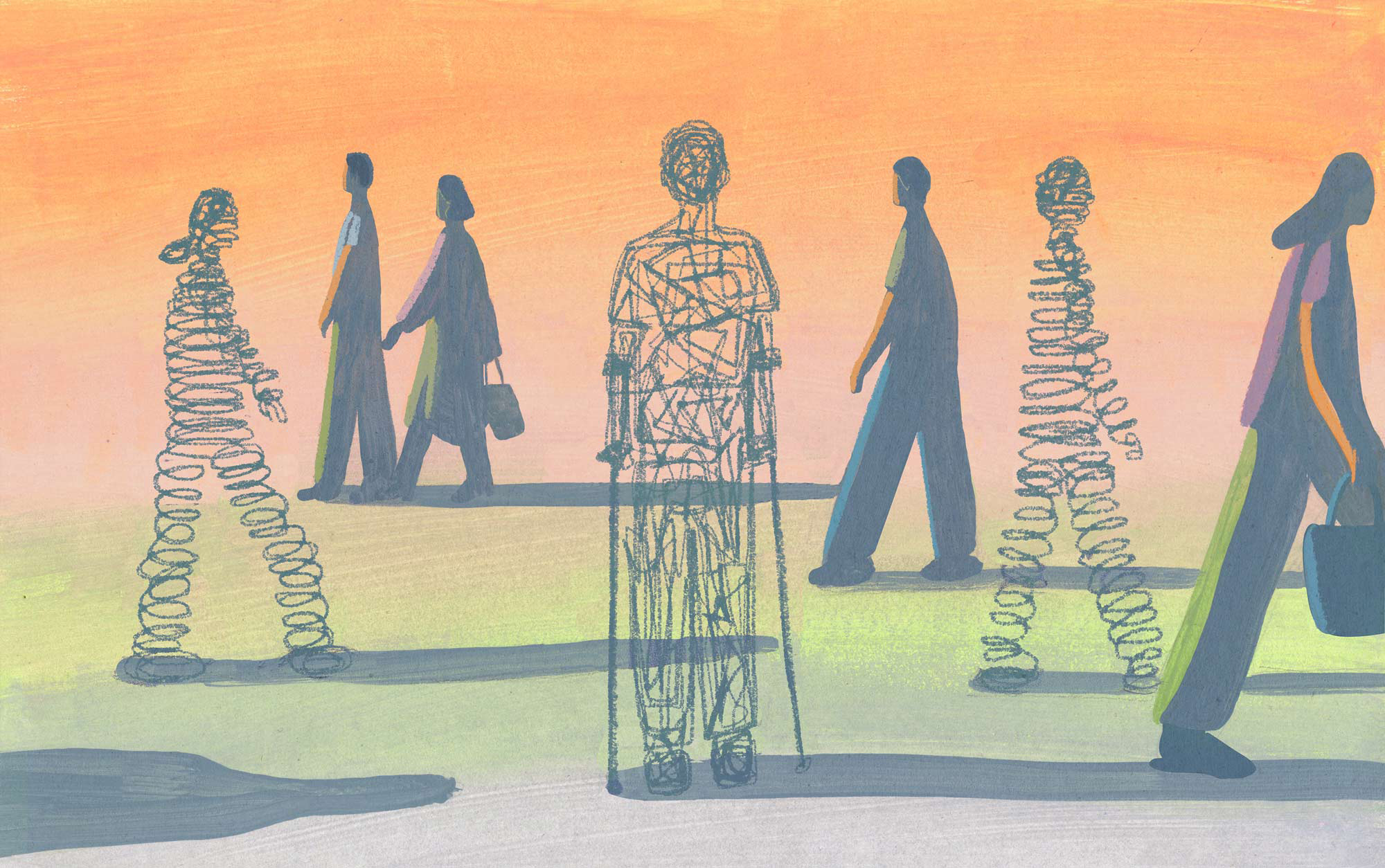“Today, I’m not in pain,” says Sarah Purinton, a doctoral candidate in philosophy at the University of Pennsylvania’s School of Arts and Sciences who suffers from chronic pain in her arms and hands. “At least in some ways, I’m in an able-bodied body.”
Every day, millions of people wake up in bodies that are not “able-bodied.” Able-bodied refers to people with reduced mobility, limited vision or hearing, or whose function has been permanently altered by injury or illness. In the United States, the wars in Afghanistan and Iraq have created about 4 million disabled veterans. More than 25 million Americans say they have long COVID with a range of health problems.

Image: Holly Stapleton
“One of the truisms about disability is that if we live long enough, we’ll all be disabled,” says English professor Heather Love, a scholar of gender and sexuality studies and queer studies who expanded her interest to disability studies around 2010. In 2019, she suffered a stroke that left her legally blind and unable to drive or read normal print. “It may seem like a niche field, but I think these tools are really helpful in understanding what it means to be embodied and to die.”
The pandemic has highlighted questions around disability and access, raising questions about whether some of its effects qualify as disabilities, and what it’s like to be unable to go to school or work or see family and friends.
There’s a growing academic movement studying how disability is viewed in history, art, and the world. The focus is not just on increasing knowledge, but also on effecting positive change. “I think at the most basic level, the aim is to advance the well-being of people with disabilities,” Love says. “And that includes everything from access to the broader culture to reduced stigma to legal inclusion. There’s a lot that needs to happen to enable thriving.”
Love, Purinton, and other scholars from the Faculty of Letters and Sciences are exploring the history of disability in the United States – a history of discrimination and advocacy, technological advances and failed solutions, prejudices and obsessions. They focus on how disability is represented, how we value and embrace difference, and how (or whether) disability can be defined and how that perception affects individuals.
Beth Rinker, the Samuel H. Preston Endowed Associate Professor of Social Science and chair of the Department of History and Sociology of Science, explores the history of disability and shows how contemporary notions of disability are tied to the industrialized workplace and veterans’ welfare.
Leah Samples is a graduate student in the history and sociology of science who works to understand and amplify the experiences of blind Americans. Working as an AmeriCorps volunteer at an assistive technology center in Nashville, Tennessee, Samples witnessed the structural forces and access (healthcare, transportation, technology) issues that shape the lives of many disabled Americans. She interviewed 100 legally blind residents, asking them about their daily lives and the barriers they face. “What became really clear to me was how much discrimination blind Americans face that is unique to being blind,” she says.
For more details, see the OMNIA Spring/Summer 2023 issue.

